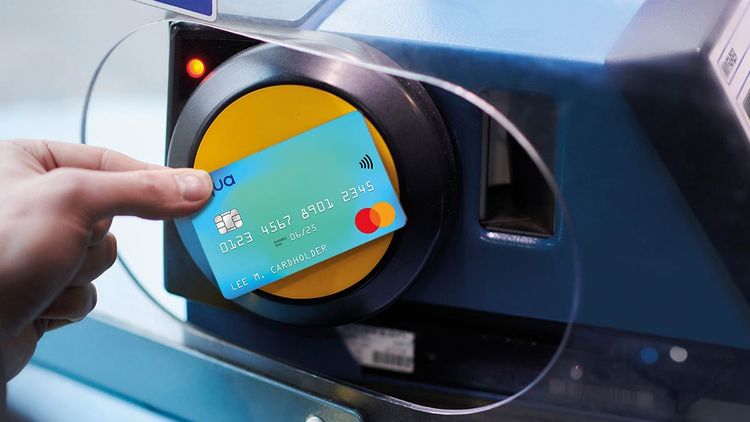In this article
What is the minimum payment on a credit card?
Wondering what the minimum payment on a credit card is? Learn how it's calculated, repayment management, and what happens if you only pay the minimum.

A minimum payment is the lowest monthly amount you can pay towards an existing credit card balance.
As appealing as it may sound as a repayment option, it’s important to remember an outstanding balance often accumulates interest, making it harder to manage debt and protect your credit score.
For that reason, you should always consider every repayment option offered by a lender before making a minimum payment that could cost you more in the long run.
How is a minimum payment on a credit card calculated?
A minimum payment amount is usually calculated by a small percentage of your credit card balance, or a fixed fee set by the lender (whichever is greater).
For example, if you’re paying monthly interest of 2.5% on a credit card balance of £100, the interest is £2.50. However, if you’re charged a fixed fee, you could pay anything up to £25. It all depends on the terms set out by your lender.
An Aqua credit card statement will show your calculated minimum payment and when it’s due. If you don’t make payment on time, you could be charged a late fee as well as lose any promotional offers associated with your account.
For that reason, it’s wise to stay on top of payments with a view to clearing your balance sooner rather than later. If you get into the habit of only making minimum payments, it could take years to clear your balance.
Why does the minimum payment matter?
Whether it’s making a minimum payment or paying off your balance in full, keeping up to date with payment deadlines can help you avoid late fees and interest on late payments.
By missing a payment deadline, you could also have a mark added to your credit report which could impact your credit score. If that’s the case, your lender may offer a grace period of 14 days before they notify the credit reference agencies.
Depending on the terms set out by your lender, you could also face other penalties, such as loss of promotional offers or a restriction on your account, until an overdue balance has been settled.
For that reason, it’s best to keep up with payments – even if it’s just the minimum amount each month. That way, you’re more likely to avoid late fees and other account penalties while you get your finances in check.
Should you carry a credit card balance month by month, you might find yourself in a cycle of persistent debt where the cost of interest, charges and credit card fees exceeds the amount borrowed over an 18-month period.
If you’re not able to make a minimum payment, it’s best to contact your lender and explain the situation. By ignoring an overdue balance, your account could go into default and stay on your record for up to six years.
How to manage your minimum payments effectively
Managing minimum payments effectively not only demonstrates to lenders you’re on top of your finances, but it also helps to avoid late payment fees.
One of the simplest ways to make payments on time is to set up a direct debit with your lender either online or over the phone. As part of the set-up process, you’ll typically have the option to pay a minimum or fixed monthly amount, or the entire statement balance in full – whichever works best for you.
With Aqua you can clear your balance faster with the option to boost your payments. It's something created to pay a little more each month without having to pay off the full balance if you don't want to or are not able to.
If you don’t want to set up a direct debit, you could schedule payment reminders using your calendar. Or if you’re an Aqua customer, you can set up payment alerts using the Online Account Manager or in the Aqua app.
Along with whichever method you use to manage repayments, you should also review your monthly statement which will break down and explain credit card payments.
For example, if you’re regularly paying the minimum, you could be paying off interest rather than the original borrowing amount. To reduce costs and protect your score, you should repay more than the minimum amount wherever possible.
Can paying only the minimum affect your credit score?
As tempting as it might be to pay off the minimum each month, getting into the habit of making the smallest payments possible can take a toll on your credit score.
When you make minimum payments, it can leave you with a high revolving credit and credit utilisation ratio – both of which are considered by credit reference agencies when calculating your credit score.
Instead, it’s often smarter to demonstrate a consistent and responsible repayment behaviour where monthly payments are beyond the minimum amount to clear your balance as soon as possible.
Not only will this go a long way to build and maintain your credit score, but it will also help to regain control of your finances and demonstrate to lenders you’re responsible with credit.
With whichever route you take to repay debt, it’s a good idea to check your credit score along the way to understand the impact of your repayment strategy.
If you see a decline in your score, it might be wise to make larger payments wherever financially possible. For more information on what might impact your score, explore our credit score FAQs.
Having the option to pay off the minimum each month can give you the financial flexibility to manage other expenses. But by having a rolling balance, you could accumulate more interest and find it harder to get out of debt.
With an Aqua credit card, you can choose from a range of repayment options and experience the added benefit of account management support available in the Aqua app.
Representative 39.9% APR (variable) on Aqua Classic
Check your eligibility (without impacting your credit score)
Failure to make payments on time or to stay within your credit limit means that you will pay additional charges and may make obtaining credit in the future more expensive and difficult.
Contributors


You might also like
Slide 1 of 3
How credit card payments work
Learn how credit card payments work, how and why credit card charges are applied and how to manage payments.

How long do missed payments stay on a credit ...
How long do missed payments stay on a credit report? Learn how long missed payments stay on a credit report, how to...

How to keep your credit healthy
Get actionable tips on keeping your credit rating healthy and avoid the pitfalls of bad credit.
The smart way to build better credit
Aqua is the credit card that gives you the power to improve your credit score
